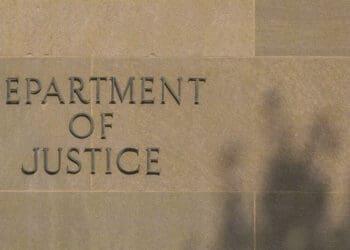Colleges and universities have faced major difficulties in recent years, ranging from decreasing enrollment to increasing negative public perception, but a new law that includes sweeping reforms to federal student loan programs may prove to be their toughest challenge yet, and CCI contributing writer Esther D’Amico explores how those challenges are likely to extend to the corporate integrity world.
The recently passed One Big Beautiful Bill Act (OBBBA), the Trump Administration’s signature domestic policy and spending bill, limits federal funding for a number of educational loan programs, including those for borrowers seeking graduate and professional degrees like JDs and MBAs — the degrees most often required for jobs like chief compliance officer (CCO) or similar executive-level roles.
“As far as chief compliance officers right now, almost everyone’s looking for a JD or an MBA,” said John Gilmore, co-founder and managing partner at executive search firm BarkerGilmore. While there are rare exceptions, “it would be a challenge to become a CCO in this climate without that.”
Because it takes years of work experience before someone with an advanced degree becomes a CCO, the impact of the new law will not immediately be felt in the C-suite, Gilmore said. But it is likely to affect the industry’s talent pipeline in a number of years if the pool of those with advanced degrees shrinks, as many predict it will due to reduced access to federal funding resources.
A recent CNBC survey of college students reveals many are deeply worried about how the changes will affect them. “Honestly, I’m cooked. I wanted to go to med school, but now I won’t,” one student wrote in the survey in which 61% of college students say they’ll be affected by the changes.
Within the compliance sector, the OBBBA has raised other questions as well. If, for example, the changes do result in fewer potential CCOs with the requisite education, would it give those who already have those degrees more leverage if they want to move into compliance? And since the law restricts the amount of federal unsubsidized loans a borrower can tap, should prospective CCOs with plans to return to school to obtain a JD or an MBA consider pivoting to another field if they are already near the loan limit?
As far as law school admissions, Nikia Gray, executive director of the National Association for Law Placement, cautioned that no one knows yet what the impact of the new law will be on the pool of candidates as there has always been a variance between the number of law school applicants and the number who are admitted. It may be that the cuts will not reduce the number of law students but instead shift the makeup of them to those who come from a wealthy background and are less dependent on financial aid, she said.
“We do know that the students who are most heavily reliant on financial aid are going to be the ones who are most impacted and that the bill could deter qualified candidates, particularly those from low income, rural and non-traditional backgrounds, from attending law school,” Gray said.
Big Law firms are watching closely to monitor the impact.
“We are very much aware of the potential impact of federal student loan borrowing caps on the legal talent pipeline,” said Erika Gardiner, director of talent acquisition for law students and associates at McDermott Will & Schulte, which was recently created from the merger of McDermott Will & Emery and Schulte Roth & Zabel. “Students and employers are facing changes that will likely make it more difficult for talented students from varied socioeconomic backgrounds to pursue legal careers.”
According to the Education Data Initiative, the cost of a master’s degree ranges from about $45,000 to just over $71,000. The average cost of law school is $217,000, with tuition accounting for about $138,000 of that and living expenses making up the rest.
The OBBBA “definitely does change the landscape” for those pursuing a graduate or professional education like lawyers, said Melanie Gottlieb, executive director of the American Association of Collegiate Registrars and Admissions Officers.
“Borrowers will need to find alternative funding sources, but there are fewer alternatives at the [graduate degree] level,” she said. Some schools may end up boosting their grant or scholarship offerings to help students, but usually those programs are geared toward undergraduates, she said. There will likely be a large funding gap for those seeking advanced degrees but can no longer rely on federal loans for help, she added.
Loan limits & concerns
Among the OBBBA’s numerous education-focused funding reforms is a limit beginning July 1, 2026, on the maximum aggregate amount of federal direct unsubsidized loans. For graduate students, this amounts to an annual loan limit of $20,500 and a total aggregate lifetime cap of $100,0000. For professional degree students, this means an annual limit of $50,000, with a total lifetime aggregate cap of $200,000.
Also by July 1, 2026, the law eliminates the Grad PLUS program, which offers fixed-rate, credit-based loans that are used to cover the full cost of attendance, including food, housing and other costs beyond tuition. The law includes a provision that allows current Grad PLUS borrowers to continue borrowing for the remainder of their program or for three years, whichever is less.
“There was always a cap on the direct unsubsidized loan program, which students now can borrow $20,500 per year from and then borrow from the Grad PLUS program all the way up to their total cost of attendance,” said Sarah Austin, policy analyst at the National Association of Student Financial Aid Administrators.
Eliminating Grad PLUS is significant because many students rely on it, Austin said.
“While the argument could be made that eliminating this would lead to institutions lowering their cost so that those students could afford [to attend], we’ll have to wait and see if that’s actually what happens or if, instead, students just simply cannot access those graduate and professional programs” and end up walking away.
“That’s the major difference here. The $50,000 per year [new annual loan cap] looks like an increase compared to the $20,500 that students previously could borrow. But with the Grad PLUS loan program, they could have borrowed even beyond $50,000 if needed,” she said.
These new aggregate limits may end up being deal-breakers for thousands seeking advanced degrees.
“What most people tend to miss with the aggregate loan limits is that, if students want to go back to school again, they have to subtract what they’ve [already] borrowed” from the lifetime total loan of $100,000 for graduate or $200,000 for professional degrees, said Emmanual Guillory, senior director of government relations at the American Council on Education, a coordinating body for the higher education community.
Preliminary data from the Office of Federal Student Aid shows that more than 1.2 million graduate students took out federal loans for award year 2024-25. Of the total, more than 1.1 million borrowers took out unsubsidized loans and more than 390 million tapped the Grad PLUS program.
Among other concerns with the OBBBA is its vague language around certain terms. For example, the law introduces the term “professional student,” which it defines as one enrolled in a program that awards a professional degree, as opposed to “graduate student,” which means one enrolled in a program for a graduate degree that is not a professional degree.
“We’ve never had a distinction before between graduate and professional programs in terms of federal student loans,” Austin said. Under the OBBBA, both the graduate and professional loans are the same type of direct unsubsidized loan, but their limits are different for graduate vs. professional students, which needs further clarification, she said.
Many groups are hoping that the Department of Education will clarify such definitions when it conducts a series of negotiated rulemaking sessions later this year to implement OBBBA, Austin said.
Why Compliance & Legal Still Need to Break Up
Putting compliance under legal can create conflicts neither can resolve
Read moreDetailsCosts & private lending
Critics, including some lawmakers, say that the student loan and other funding reforms are needed because the cost of education is out of control and needs to be reined in. Programs like Grad PLUS needed to be eliminated, they argue, as its lenient guardrails around borrowing have helped drive student debt higher and resulted in a drain on taxpayers.
At a Senate Health, Education, Labor & Pensions Committee hearing in June, before the OBBBA’s passage, committee chair Sen. Bill Cassidy, (R-La.), himself a physician, said the higher education system has “lost its purpose. Students are graduating with degrees that won’t get them a job and insurmountable debt that they can’t pay back.” The student loan reforms are also expected to have broad implications for medical school borrowers.
While many financial aid officers and others agree that educational costs have skyrocketed, they say the OBBBA reforms will likely result in making education inaccessible to many would-be students and force some who are already enrolled in programs to drop out.
It remains to be seen how institutions will respond and whether unintended consequences will arise, but the worst-case scenario is that students will pay more to go to college because they will have less access to federal help, Guillory said. Their only other option would be the private loan market, he said.
Loans from the private market are not an option for some students, however, as they have higher interest rates, tighter credit requirements and less flexible repayment terms compared to federal student loans.
“With private loans, you don’t know how much you would have access to,” Guillory said. “You don’t know how much the bank would trust the borrower.”
Students who qualify for these loans may end up paying more than they would with federal loans due to the higher interest rates and stricter terms, he said. And some students will be locked out entirely due to their credit.
Institutional scramble
Since the OBBBA became law only weeks ago, schools are still working to understand its provisions and determine their next step, financial aid experts said.
“In the meantime, I think schools are trying to get creative on what the possibilities are,” Austin said. Some are discussing the prospect of offering institutional loans for students who are unable to tap the private market, and some are looking at their pricing and where they may be able to make cuts, she said.
“I’m sure there are some schools exploring making up for that gap with additional resources, maybe institutional loans, maybe grants or scholarships,” Austin said. It may be that states and other third parties will step in, she said.
Gardiner said her firm is closely monitoring developments and will “remain nimble in adapting our approach as the environment changes.” The goal, she said, will be to help the next generation of lawyers access, enter and thrive in the profession.




 Esther D’Amico, a Washington, D.C.-based politics and policy reporter who specializes in antitrust, EH&S and other regulatory concerns, is a contributing writer for Corporate Compliance Insights. She’s also been published in Forbes, Kiplinger and Mergermarket.
Esther D’Amico, a Washington, D.C.-based politics and policy reporter who specializes in antitrust, EH&S and other regulatory concerns, is a contributing writer for Corporate Compliance Insights. She’s also been published in Forbes, Kiplinger and Mergermarket. 






